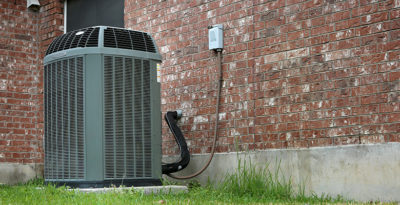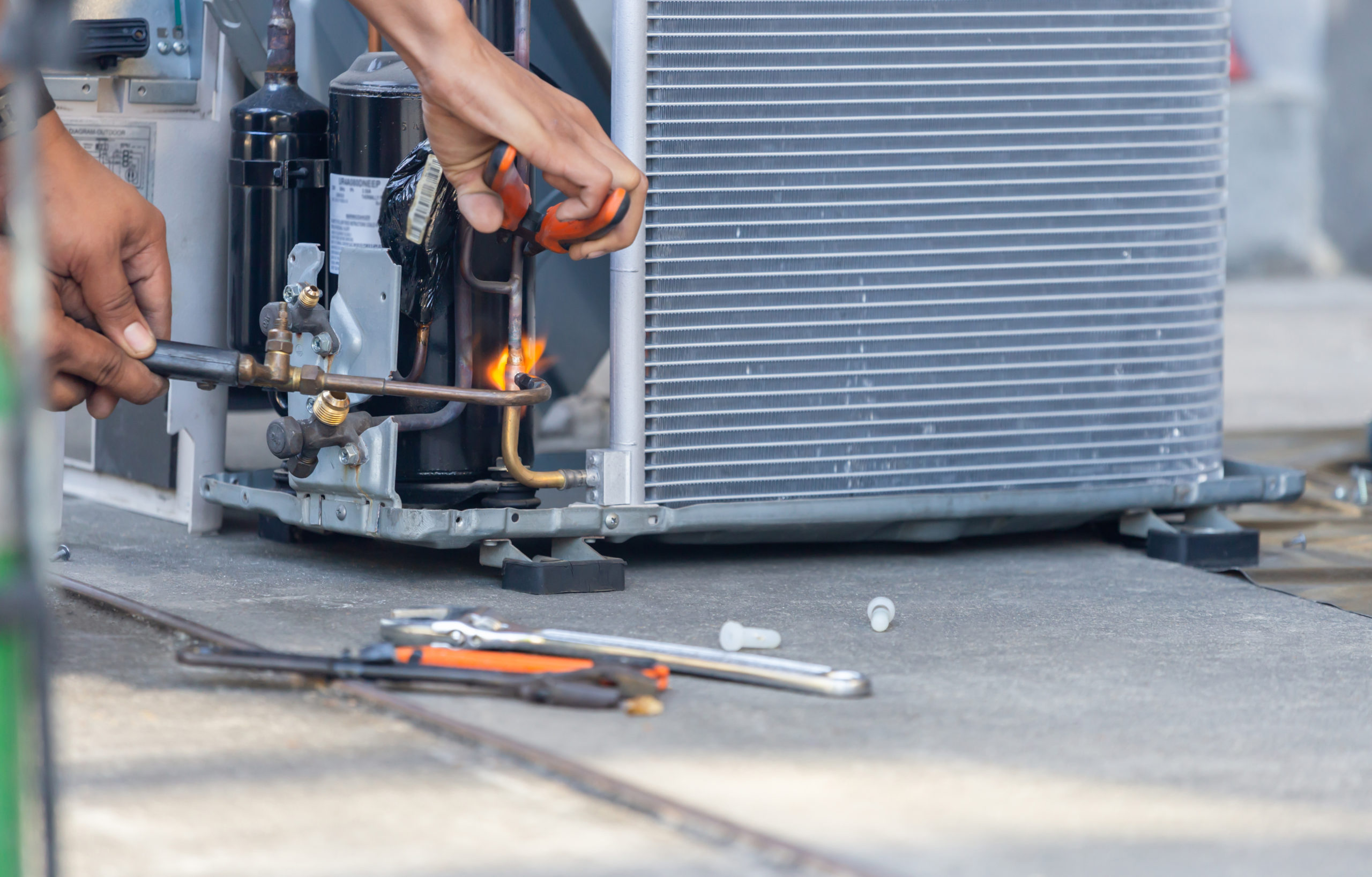Water leaks and surprise puddles tend to have Cedar Rapids area homeowners curious about plumbing problems, but that mystery pool may come from your cooling system! If your air conditioner is leaking water outside, this moisture usually points to a handful of system issues. In our most recent blog, Novak Heating, Air and Duct Cleaning explains the causes behind a leaking air conditioner and what to do about it.
What Is Leaking – Water or Refrigerant?
Usually when you see a puddle of liquid coming from the outdoor air conditioning unit, it’s water or condensation. However, it is possible for air conditioners to leak refrigerant, the coolant used to absorb and transfer heat in an AC unit. R-22 (Freon) and R-410A (Puron) are the most common refrigerants used in air conditioners and heat pumps today. HVAC equipment manufactured since 2010 contains R-410A while older units likely use R-22.
Refrigerants can escape an air conditioner due to leaks in the refrigerant lines or other components. A refrigerant leak typically will not produce a puddle that looks like a water spill surrounding your AC condenser unit, as refrigerant vapor escapes from the leak rather than liquid, which evaporates rather quickly. An R-410A leak may leave behind a faint, sweet odor, while an R-22 leak can leave behind a greasy, somewhat viscous liquid as well as a white residue at the location of the leak.
Exposure to refrigerant via a leak is hazardous and potentially deadly, so leave the area right away. Call a technician from Novak in Cedar Rapids, IA for air conditioning repairs if you suspect leaking refrigerant.
An Air Conditioner Leaking Water Outside Could Mean…
First, know that a small puddle of water that evaporates quickly is likely condensation runoff from normal operation, especially during a hot or humid day. More significant pools of water that remain after the unit turns off are problematic and could be caused by:
Clogged or Damaged Condensate Drain Line
An air conditioning system generates condensation during the cooling process as water vapor condenses into liquid form when air temperatures decline. This water drips from the evaporator coils into a collection pan and out of the home through the connected condensate drain line. Obstructions can form in the drainpipe due to debris or damage to the pipe and clog up the line, leading to puddles that look like an air conditioner is leaking water outside.
- Clear condensate drain line clogs using a wet/dry vacuum at the outdoor exit of the drain or by inserting a long wire brush down into the opening. Contact your HVAC contractor if you cannot remove clogs and restore proper drainage or if you find damage to the drain line that needs to be replaced.
- Prevent clogs in the drain line by flushing it with a water and bleach solution each month.
Crack or Clog in the Drip Pan
The drip pan sits below the evaporator coils, collecting moisture runoff during cooling. Normally, moisture should flow down into the condensate drain line and out of the home. Cracks or clogs can stop up the drain, causing water to spill out around the indoor unit and not outside.
- Turn off power, and access the condensate pan. Use a wet/dry vacuum to remove all standing water, and assess the part for damage or clogs. Clear debris forming a clog in the drip pan, and clean the drip pan to remove any algae growth.
- Cracked or damaged drip pans need to be replaced to prevent water damage to your home and cooling system.
Frozen Evaporator Coils
The system’s evaporator coils can freeze over for several reasons. Poor airflow due to a dirty air filter or low refrigerant levels preventing heat absorption are common causes. When ice buildup on the coils melts, this could lead to an excess of water runoff to be flushed out through the condensate drain line, forming what appears to be an AC leak outside.
- If the coils freeze, shut off the cooling unit and turn on the blower fan at the thermostat to circulate warm air over the coils. Check the air filter, and replace it if needed.
- If you could not locate the source of the frozen coils or the coils continue to freeze up again, call your HVAC company for air conditioner repair.
Cooling Repairs in Cedar Rapids
If you notice your air conditioner leaking water outside or elsewhere along the system, call Novak Heating, Air and Duct Cleaning for fast, reliable air conditioning repair services. We put an end to leaks to prevent water damage and restore energy-efficient operation. Contact us to schedule service in Cedar Rapids and the surrounding areas, including Hiawatha, Robins, and North Liberty, today!


